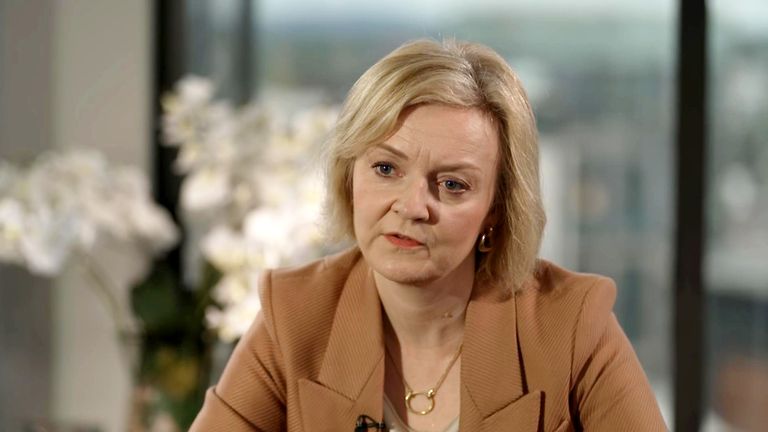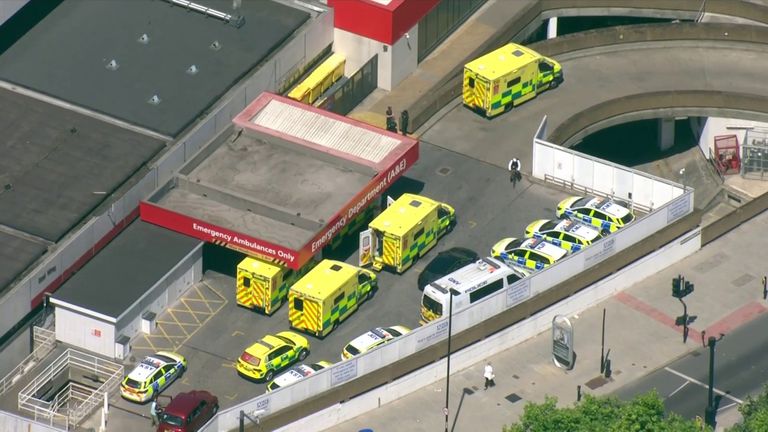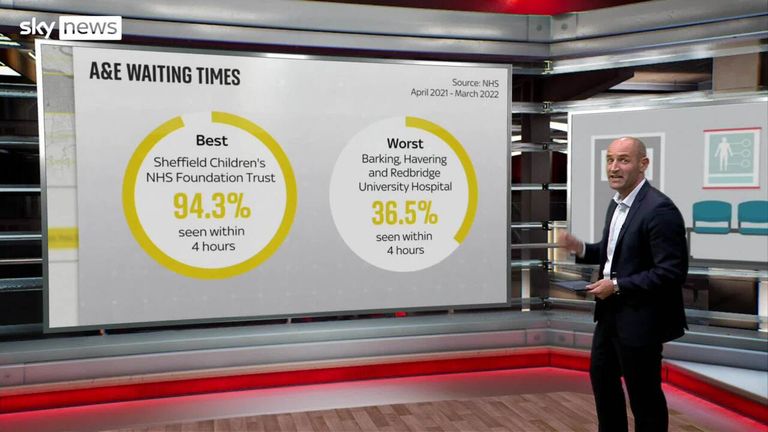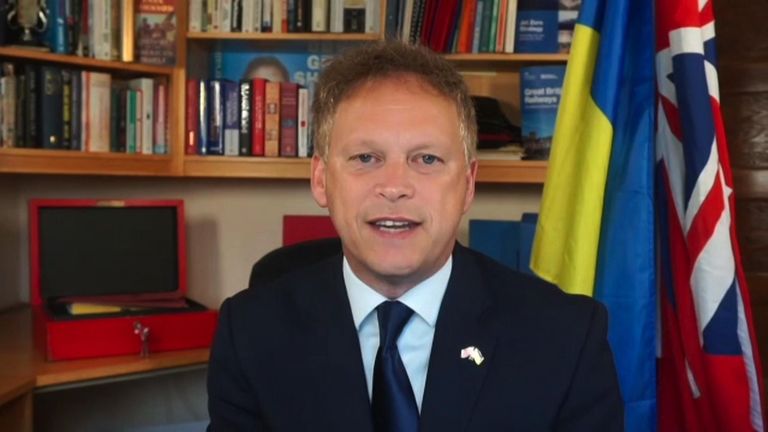Pound falls again as agency downgrades outlook for UK’s credit rating to ‘negative’ | Business News
A measure of confidence in the UK’s creditworthiness has been slashed by another major ratings agency in the wake of the mini-budget, piling further pressure on the under-fire pound.
Fitch revealed on Wednesday night that it had cut the outlook for its credit rating on UK government debt to “negative” from “stable”.
It maintained its overall rating – with AAA being the ideal verdict – at AA-.
The shift reflected, it said, mounting concern over the level of borrowing required to fund the chancellor’s tax and spending pledges made in the Commons last month.
Financial markets delivered a stinging verdict on the package, dubbed a growth plan by Kwasi Kwarteng, with sterling eventually plunging to an all-time low against the dollar.
Investors also demanded higher rates of return for holding UK government debt, with the Bank of England later intervening to buy long-dated bonds to prevent a crisis for pension funds.
A series of U-turns have since helped the pound and bond yields recover some poise.
The UK currency was, however, trading back towards $1.13 on Thursday morning though that partly reflected a rekindling of dollar strength after further oil market turbulence.
Fitch revealed its decision days after a similar move by rival Standard & Poor’s.
It said of the chancellor’s mini-budget: “The large and unfunded fiscal package announced as part of the new government’s growth plan could lead to a significant increase in fiscal deficits over the medium term.”
The agency hit out at the lack of independent budget forecasts from the Office for Budget Responsibility (OBR) in the statement and the policy clash that sees the government trying to grow the economy at a time when the Bank of England is trying to shrink demand in its fight against inflation.
It added: “Although the government reversed the elimination of the 45p top rate tax… the government’s weakened political capital could further undermine the credibility of and support for the government’s fiscal strategy.”
Sky News revealed on Wednesday that Mr Kwarteng was due to meet bank bosses on Thursday amid concerns about the impact of the recent market turmoil on home loan provision.
It has emerged that the average mortgage interest rate has risen to above 6%, meaning households are paying the greatest portion of their income on mortgage payments since 1989 – exacerbating the wider cost of living crisis.





